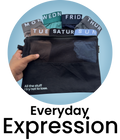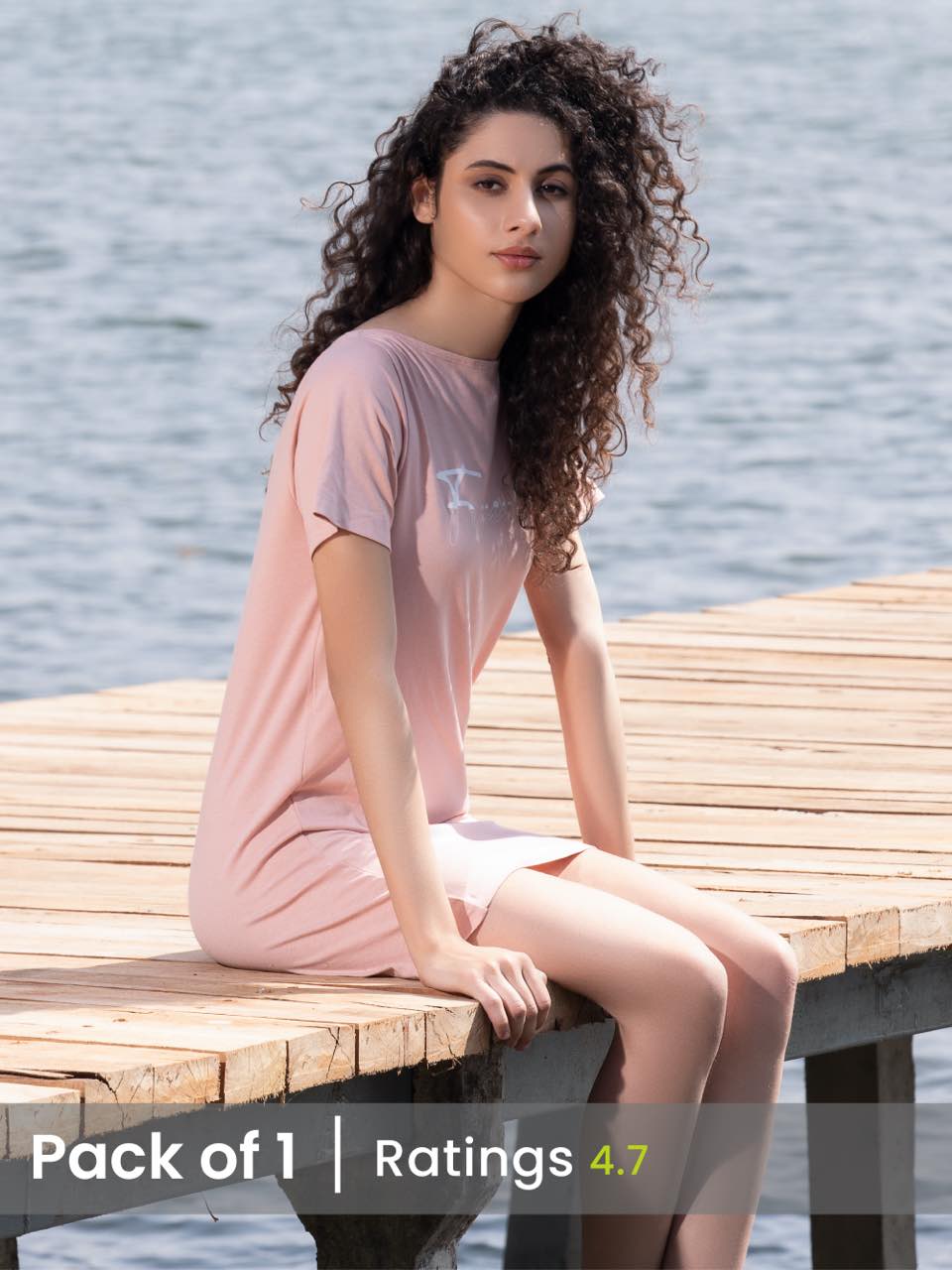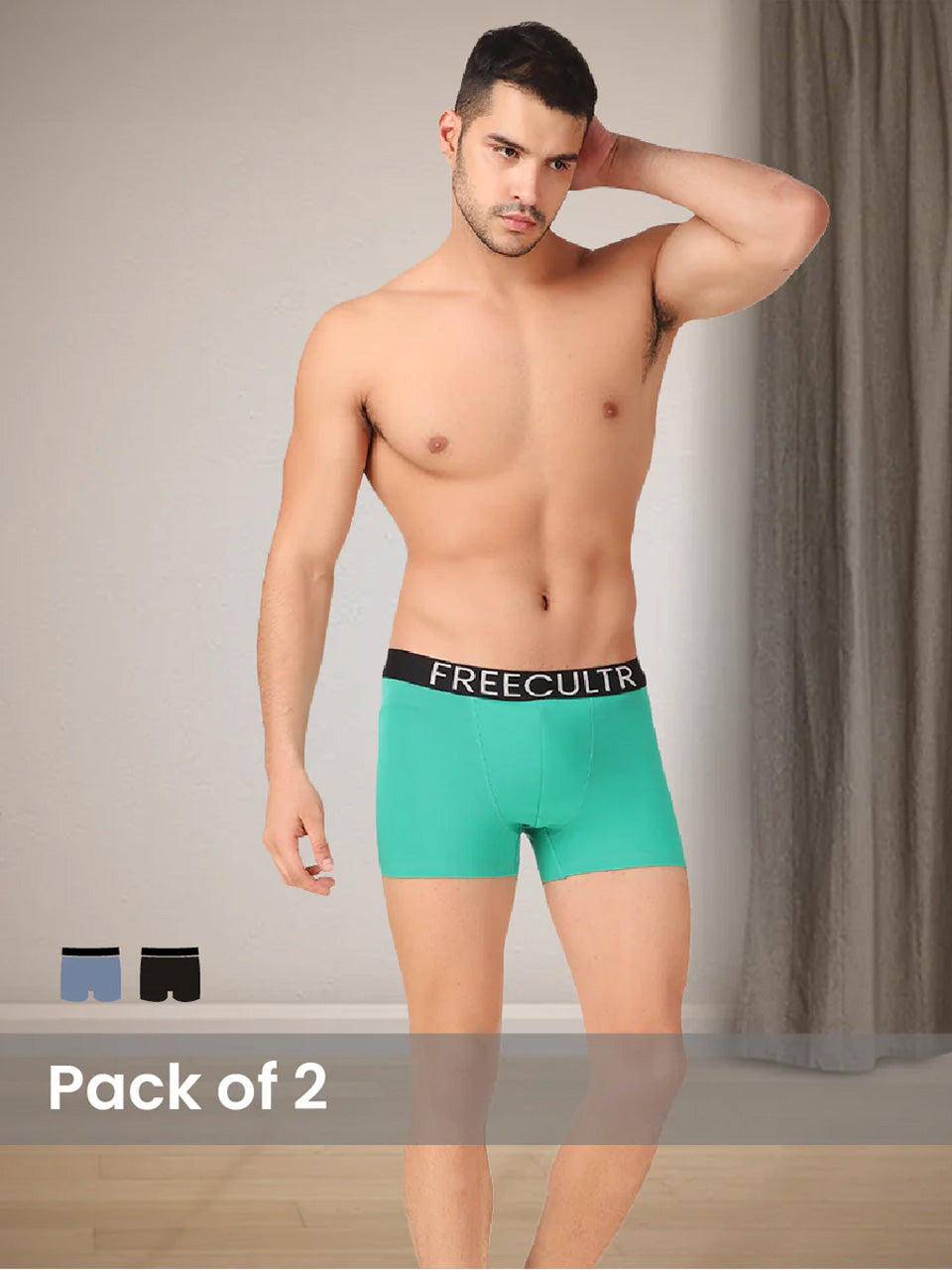As consumers increasingly prioritize environmental stewardship and personal well-being, the bamboo tshirt stands out as a leading innovation in sustainable apparel. Unlike conventional cotton or synthetic fabrics, bamboo rayon harnesses the plant's inherent properties, delivering exceptional thermoregulation, superior moisture-wicking. Remarkable natural odor resistance. This intrinsic ability to inhibit odor-causing bacteria, a key feature recently emphasized in textile science, significantly reduces laundry frequency, aligning with current eco-conscious lifestyles. The unique micro-gaps within bamboo fibers create a breathable fabric that keeps wearers comfortable across diverse climates, redefining everyday comfort standards while contributing to a growing demand for environmentally responsible textiles.

The Marvel of Bamboo: More Than Just Panda Food
When we talk about sustainable fashion, one material keeps popping up. For good reason: bamboo! But what makes this grass so incredibly special that it's revolutionizing our wardrobes, especially when it comes to something as fundamental as a bamboo tshirt? Well, let's dive into the plant itself.
Bamboo is truly a superstar of the plant kingdom. It's not just a cute snack for pandas; it's one of the fastest-growing plants on Earth, with some species capable of growing several feet a day! This rapid growth means it can be harvested frequently without depleting resources. Even better, bamboo thrives without the need for harsh pesticides or chemical fertilizers. It largely sustains itself, requiring minimal irrigation beyond natural rainfall, making it far less water-intensive than, say, conventional cotton. Its extensive root system also helps prevent soil erosion, contributing positively to the ecosystem where it grows.
So, from an environmental standpoint, starting with bamboo as a raw material for your next favorite bamboo tshirt already puts us on a winning path. It's a highly renewable resource that gives back to the earth rather than taking away.
From Stalk to Softness: How a Bamboo T-shirt is Made
You might be wondering, how does a rigid bamboo stalk transform into something as soft and comfortable as a bamboo tshirt? It's a fascinating journey. There are a few different paths to get there, each with its own environmental footprint.
The most common method for turning bamboo into fabric is through a process that creates "bamboo viscose" or "bamboo rayon." This involves:
- Harvesting the bamboo and crushing it into pulp.
- Dissolving the pulp in a chemical solution (typically sodium hydroxide) to break it down into cellulose.
- Extruding this cellulose solution through tiny holes, creating fibers.
- These fibers are then spun into yarn, which is woven or knitted into fabric.
While this process uses chemicals, many modern facilities operate with closed-loop systems, meaning they recover and reuse the solvents, significantly reducing their environmental impact. A newer, more eco-friendly method is the "bamboo lyocell" process. Similar to Tencel production from eucalyptus, this method uses a non-toxic solvent (amine oxide) that is almost entirely recycled, making it a much greener option. When you're looking for a truly sustainable bamboo tshirt, checking if it's made with bamboo lyocell is a great step!
Regardless of the specific process, the end result is a fiber that retains many of bamboo's incredible natural properties, making it an excellent choice for clothing.
Unrivaled Comfort: Why Your Bamboo T-shirt Feels Amazing
Alright, let's get to the good stuff: how does a bamboo tshirt feel? If you haven't worn one, prepare for a revelation. The comfort factor is often the first thing people rave about. It's not just hype.
- Silky Softness Imagine the feeling of cashmere or silk against your skin. Without the high maintenance or animal cruelty. That's what a bamboo tshirt offers. The fibers are naturally smooth and round, with no sharp spurs to irritate the skin, making them incredibly soft to the touch. I remember the first time I slipped into a bamboo tee – it felt like a second skin, almost luxurious, completely unlike any cotton shirt I owned.
- Breathability Bliss Bamboo fabric is incredibly breathable. Its natural structure features micro-gaps and tiny holes, allowing for excellent air circulation. This means heat can escape easily, keeping you cool and comfortable, even on warm days.
- Temperature Regulation This is where bamboo truly shines. Thanks to its porous nature, a bamboo tshirt adapts to your body temperature. In hot weather, it wicks moisture away and allows air to circulate, creating a cooling effect. In cooler weather, the fabric traps warm air close to your body, providing a surprising amount of insulation. It's like a natural thermostat for your wardrobe!
- Moisture-Wicking Magic Those micro-gaps we just talked about? They're also fantastic at wicking moisture away from your skin. Sweat is quickly absorbed and evaporated, leaving you feeling dry and fresh, even during a workout or a stressful commute.
- Hypoallergenic Harmony For those with sensitive skin or allergies, a bamboo tshirt can be a game-changer. The naturally smooth fibers and absence of harsh chemicals (especially in lyocell versions) make it far less likely to cause irritation compared to some synthetic fabrics or even conventional cotton.
Banish the Funk: Bamboo's Natural Odor-Resistant Power
Here's a claim that sounds almost too good to be true. It's one of the most celebrated features of a bamboo tshirt: its natural ability to resist odors. No more worrying about that mid-day funk, even after a long day or a light workout!
The secret lies in a unique bio-agent found naturally in bamboo fibers, often referred to as "bamboo-kun." While the exact scientific mechanisms are still being explored, studies suggest that bamboo-kun possesses antimicrobial and antibacterial properties. What does this mean for your bamboo tshirt?
- Inhibits Bacterial Growth The primary cause of body odor isn't sweat itself. The bacteria on our skin that break down sweat. Bamboo-kun actively works to inhibit the growth of these odor-causing bacteria on the fabric. Fewer bacteria mean significantly less odor.
- Stays Fresher, Longer Because bacteria aren't multiplying as rapidly, your bamboo tshirt stays fresh for extended periods. This is a huge benefit for everyday wear, travel (imagine packing fewer shirts!). Even light exercise. You might find yourself needing to wash your bamboo tees less frequently than your cotton ones, which is another win for sustainability (less water, less energy!).
This natural odor resistance isn't just a marketing gimmick; it's a practical benefit that makes a real difference in daily comfort and convenience. It means you can feel confident and fresh throughout your day, no matter what it throws at you.
Bamboo T-shirt vs. The Competition: A Fabric Face-Off
To truly appreciate the wonder of a bamboo tshirt, let's see how it stacks up against some of the other popular fabrics commonly found in our wardrobes. Each has its pros and cons. Bamboo often emerges as a strong contender, especially when sustainability and comfort are top priorities.
| Feature | Bamboo T-shirt (Viscose/Lyocell) | Conventional Cotton T-shirt | Organic Cotton T-shirt | Polyester T-shirt |
|---|---|---|---|---|
| Softness | Exceptional, silky, smooth | Soft, can be a bit stiff | Very soft, can improve with washes | Often feels synthetic, can be smooth or rough |
| Breathability | Excellent, highly breathable | Good. Can feel heavy when wet | Good, breathable | Can be less breathable, especially dense weaves |
| Odor Resistance | Natural, excellent (due to bamboo-kun) | Poor, harbors odor-causing bacteria | Poor, harbors odor-causing bacteria | Poor, often requires antimicrobial treatments that wash out |
| Moisture Wicking | Excellent, pulls moisture away from skin | Absorbs moisture, can stay wet | Absorbs moisture, can stay wet | Good, dries quickly. Can feel clammy |
| Sustainability (Raw Material) | Highly renewable, low water/pesticide needs | High water/pesticide use (conventional) | Lower water/pesticide use. Still water-intensive | Petroleum-based, non-renewable |
| Sustainability (Processing) | Can be chemical-intensive (viscose), or eco-friendly (lyocell) | Standard processing can be chemical-intensive | Less chemical-intensive processing | Energy-intensive, microplastic shedding concern |
| Durability | Good, strong fibers. Can pill if not cared for | Good. Can shrink and wear over time | Good, durable | Very durable, resistant to wrinkles and shrinking |
| Hypoallergenic | Naturally hypoallergenic | Generally good. Can irritate sensitive skin | Good for sensitive skin | Can cause irritation for some, especially if treated |
| Price Point | Mid to higher range | Low to mid range | Mid to high range | Low to mid range |
As you can see, the bamboo tshirt offers a compelling blend of comfort, performance. Environmental benefits that often outshines its counterparts.
Beyond the Hype: Real-World Applications and Care for Your Bamboo T-shirt
So, where does a bamboo tshirt fit into your life? Pretty much everywhere! Its versatile properties make it suitable for a wide range of activities and occasions:
- Everyday Comfort For casual wear, running errands, or just lounging at home, a bamboo tshirt is the ultimate comfort choice. Its softness and breathability make it ideal for all-day wear.
- Activewear Due to its excellent moisture-wicking and odor-resistant properties, bamboo is fantastic for light workouts, yoga, hiking, or as a base layer for more intense activities. You'll stay drier and fresher.
- Travel Essential Packing light? A bamboo tshirt is your best friend. Its odor resistance means you can wear it multiple times between washes. Its quick-drying nature is perfect for hand-washing on the go. Plus, its temperature regulation makes it great for varying climates.
- Sleepwear The incredible softness and thermoregulating properties of bamboo make it an ideal fabric for pajamas or sleep shirts, ensuring a comfortable night's rest.
To ensure your bamboo tshirt lasts for years and continues to deliver its amazing benefits, a little care goes a long way:
- Gentle Wash Wash in cold water on a gentle cycle. Hot water can cause shrinkage and damage the fibers over time.
- Mild Detergent Use a mild, eco-friendly detergent. Avoid bleach or harsh chemicals.
- Air Dry is Best Tumble drying on high heat can damage bamboo fibers and lead to shrinkage. Lay flat or hang to air dry. Bamboo dries relatively quickly anyway! If you must use a dryer, use the lowest heat setting.
- Avoid Fabric Softeners Bamboo is naturally soft, so fabric softeners aren't necessary and can actually coat the fibers, reducing their natural wicking and breathability.
By following these simple care tips, you'll extend the life of your bamboo tshirt, keeping it soft, fresh. Functional for countless wears.
Choosing Your Sustainable Comfort: What to Look For in a Bamboo T-shirt
Ready to add a bamboo tshirt to your wardrobe? That's awesome! To make the most informed and sustainable choice, here are a few things to keep in mind when you're shopping:
- Processing Method As noted before, "bamboo lyocell" is generally considered the most environmentally friendly processing method due to its closed-loop system and non-toxic solvent. While "bamboo viscose" can still be sustainable if produced responsibly, look for brands that are transparent about their manufacturing processes.
- Certifications Keep an eye out for certifications that indicate responsible production. For example:
- Oeko-Tex Standard 100 Ensures the fabric is free from harmful substances.
- FSC (Forest Stewardship Council) Certifies that the bamboo was sourced from responsibly managed forests.
- GOTS (Global Organic Textile Standard) While bamboo isn't grown organically in the same way cotton is, if the bamboo is blended with organic cotton, this certification is a good sign.
- Brand Transparency A good indicator of a truly sustainable brand is their willingness to share data about their supply chain, manufacturing processes. Labor practices. Look for brands that are open about where their bamboo comes from and how their bamboo tshirt is made.
- Blends Sometimes, bamboo is blended with other fibers like organic cotton or a touch of spandex for added stretch. These blends can also offer great benefits. Make sure the primary component is still bamboo if that's what you're after.
By being a conscious consumer and knowing what to look for, you can confidently choose a bamboo tshirt that not only feels great but also aligns with your values for a more sustainable future.
Conclusion
Embracing bamboo isn't just a trend; it's a conscious upgrade to your wardrobe, offering unparalleled sustainable comfort and natural odor resistance. I've personally found my bamboo tee indispensable for travel, where its inherent ability to stay fresh truly shines, allowing me to pack less and feel confident. This aligns perfectly with the growing movement towards mindful consumption, prioritizing quality and longevity over fast fashion. For a practical step, consider replacing one of your frequently worn synthetic tees with a bamboo alternative. You'll instantly notice the difference in breathability and how it maintains its fresh feel, even after a busy day. Ultimately, choosing bamboo is a simple yet impactful step towards a more comfortable and environmentally responsible lifestyle. It’s an investment in both your personal well-being and the planet's future. Make the switch and experience true comfort that lasts.More Articles
Men's Tees – Breathable Fabric & Everyday VersatilityMen's T-Shirt – Premium Comfort & Timeless Appeal
Women's Boy Shorts – Seamless Feel & Active Support
Women's Brief – Seamless Fit & Everyday Comfort
Men's Brief – Ultimate Support & Breathable Fabric
FAQs
What makes bamboo T-shirts so comfortable?
Bamboo fabric is incredibly soft and smooth, often compared to silk or cashmere. Its fibers are naturally round and smooth, meaning no sharp spurs to irritate your skin. Plus, it drapes beautifully, giving you a really comfortable, non-restrictive feel.
How is bamboo fabric sustainable?
Bamboo is a super fast-growing plant that requires very little water and no pesticides to thrive. It also regenerates quickly after harvesting and helps improve soil health. Choosing bamboo fabric is a great step towards more eco-friendly clothing.
Does a bamboo T-shirt really help with odors?
Yes, it does! Bamboo naturally contains a bio-agent called 'bamboo kun' which gives it inherent antibacterial and antifungal properties. This helps prevent odor-causing bacteria from growing on the fabric, keeping you feeling fresher for longer.
Are bamboo T-shirts good for people with sensitive skin?
Absolutely. Because bamboo fabric is so incredibly soft, smooth. Naturally hypoallergenic, it's an excellent choice for anyone with sensitive skin, allergies, or conditions like eczema. It minimizes irritation and feels gentle against your skin.
How do I wash and care for my bamboo T-shirt?
It's pretty easy! Generally, you should wash bamboo T-shirts in cold water on a gentle cycle. Air drying is best to maintain their shape and softness. If you use a dryer, tumble dry on low heat. Avoid bleach and harsh detergents to keep the fabric in top condition.
Are bamboo T-shirts breathable, especially in warmer weather?
Yes, they are highly breathable! Bamboo fabric has a unique micro-gap structure that allows for excellent ventilation, wicking moisture away from your skin and helping it evaporate quickly. This keeps you feeling cool and dry, even on warmer days.
How does the feel of bamboo compare to regular cotton?
Many people find bamboo significantly softer and smoother than traditional cotton. It has a luxurious, silky drape that feels different from cotton's more structured feel. Bamboo also tends to be more breathable and less prone to wrinkling than cotton.





